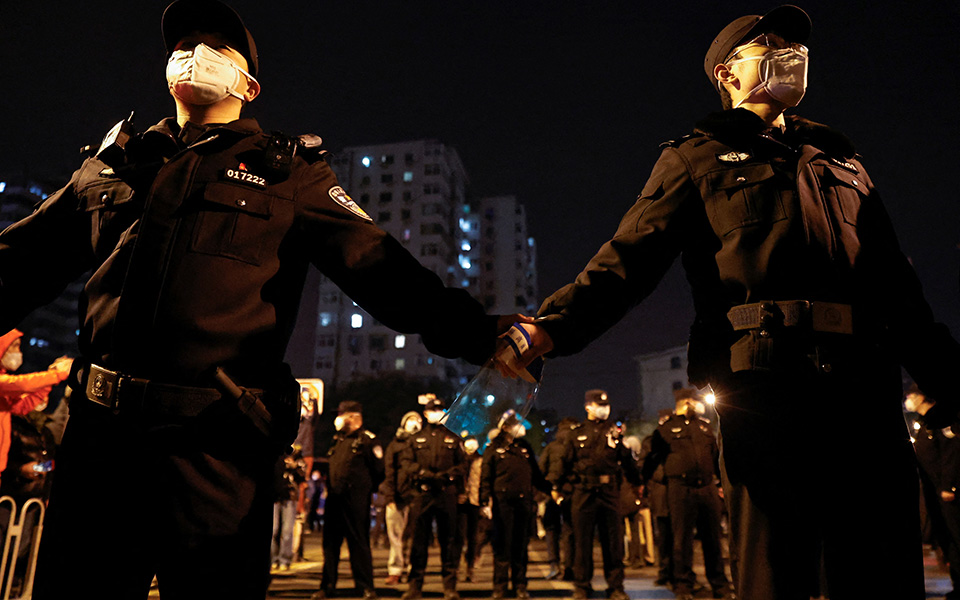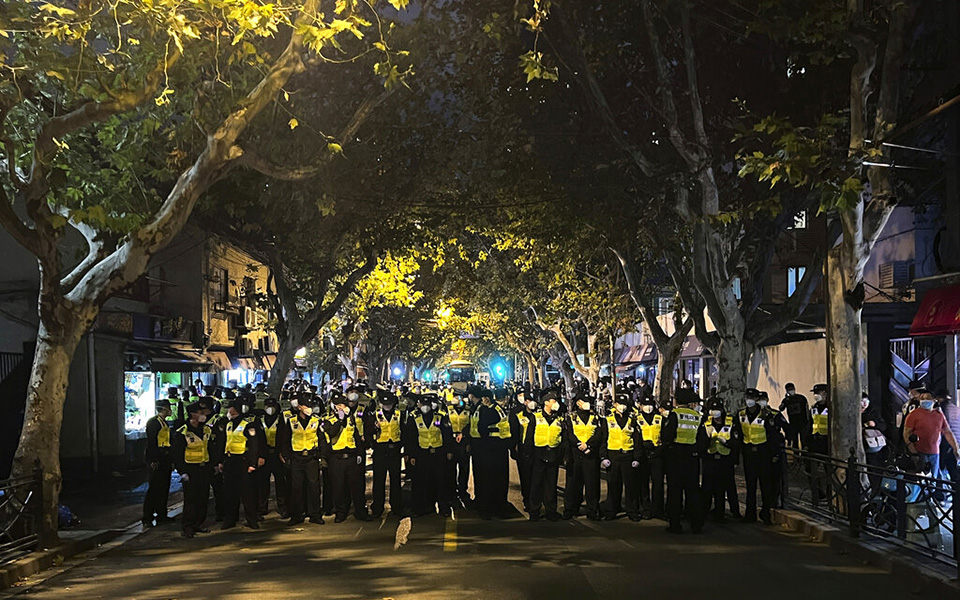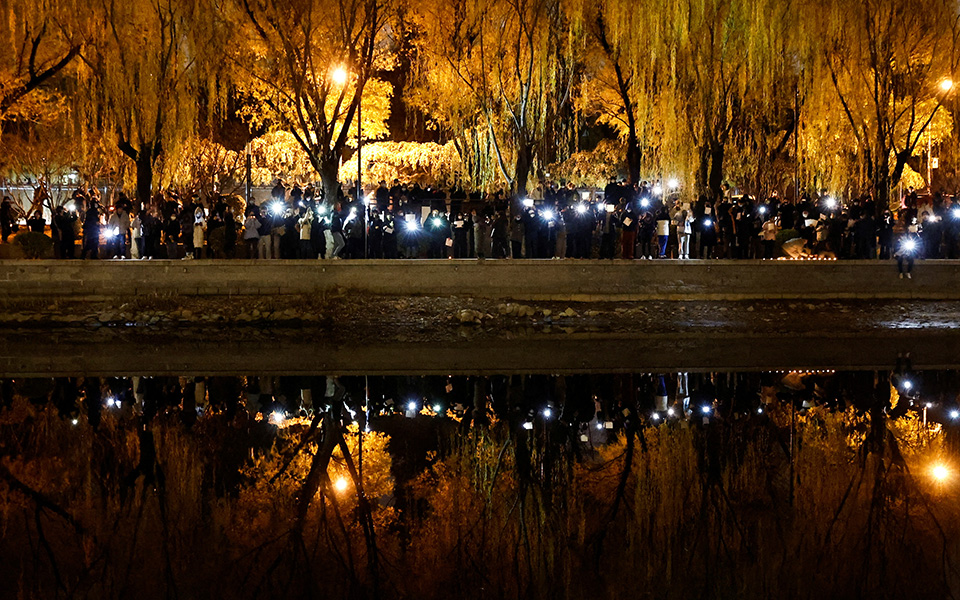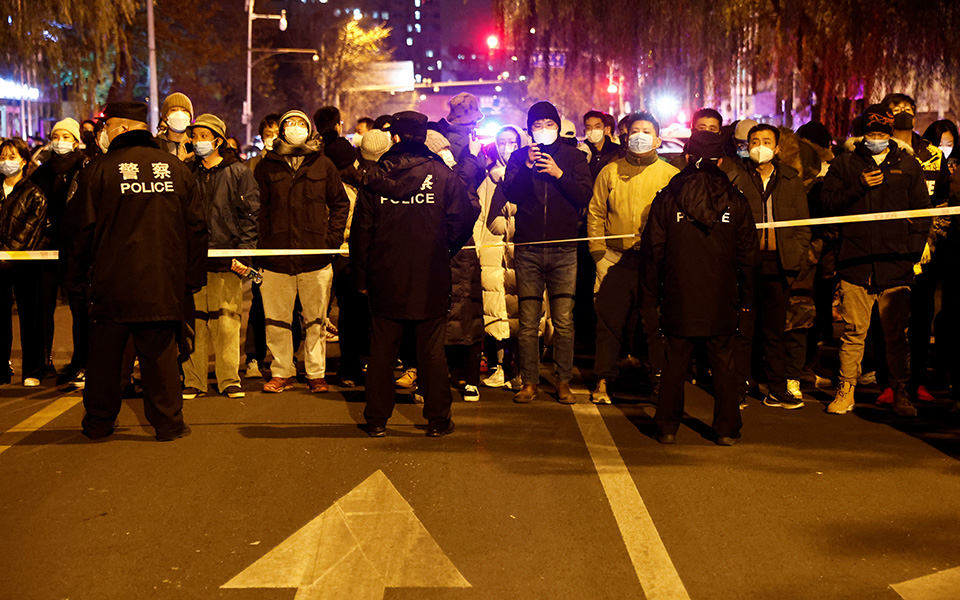Protests against the coronavirus “zero tolerance” policy are spreading from city to city like wildfire, with the most intensity since student protests in Beijing’s Tiananmen Square three decades ago.
A fire that started from a faulty cable in an apartment on the 15th floor of an apartment building in western China and claimed the lives of at least 10 people now threatens to spread across the country in the form of demonstrations and protests against the coronavirus zero tolerance policy, causing the most a wave of negative reaction to the measures taken by the Chinese authorities.
Reuters photo
Firefighters are known to have been slow to respond to a blaze in Urumqi, Xinjiang province, and many citizens find lockdowns to prevent the spread of Covid-19 to be excessive or unnecessary to prevent rescuers or lock victims into their apartments. The relevant denials by the authorities were not convincing, leaving roads in both Xinjiang and many major cities in China.
Protests are spreading from city to city. Last weekend, thousands of citizens gathered with candles and flowers in their hands to honor the memory of the victims of the fire in Urumqi. At universities, students staged nightly sit-ins, some holding official documents in silent protest against the regime. In the financial capital of Shanghai, some residents have gone so far as to call for the Communist Party and Xi Jinping to step down.

Photo: Associated Press
The outbreak has put new pressure on Mr Xi just a month after he won re-election for a third term as party leader, cementing his image as China’s most powerful leader in decades. The wave of protests was sparked by his own zero-tolerance coronavirus strategy that aims to eradicate infections through lockdowns, quarantines and mass testing. In doing so, China has kept the (official) Covid death toll low, but it has brought many Chinese cities to a standstill, disrupted the lives and travels of hundreds of millions of citizens, and forced many small businesses to close.
Unlike other protests that had trade union or even class overtones, the protests against the coronavirus policy covered all social, economic and professional strata. They are also not limited geographically. They range from migrant workers unable to find food to university students and professionals suffocated by travel restrictions.
The biggest fears of the Communist Party are related to the possible cooperation of many different groups against the authorities, generously fueled by the West, as happened with the Tiananmen Square uprising in 1989, which was crushed with the help of armored vehicles.

Reuters photo
At least as of Monday morning, top Chinese officials, including Mr Xi, avoided commenting on the protests that took place over the weekend, while the party-controlled media remained silent. However, social networks, as well as foreign correspondents, show a picture that is very disturbing for the regime. While many protesters limited their voices to loosening coronavirus-related restrictions, some seized the opportunity to put forward broader political demands, linking the draconian scale of “zero tolerance” to the country’s authoritarian system.
On Sunday, hundreds of students gathered on the campus of Tsinghua University in northwest Beijing, where they were barely allowed to leave for several weeks due to Covid-related restrictions. “Democracy and the Rule of Law. Freedom of speech,” the crowd chanted.
Another demonstration in Shanghai chanted, “We don’t want lies, we want respect. We don’t need a leader, we want to vote.” In Wuhan, the suspected source of the pandemic, angry crowds tore down roadblocks set up to enforce local restrictions.
BBC journalist Ed Lawrence was arrested by police during the protests. A statement from the publication later reported that “at the time of his arrest, the police beat and kicked him” before releasing him. It is not yet clear if he has been charged with anything. The British broadcaster reported that officials explained: he was arrested … “for his own good, in case he catches covid from the crowd.” “We do not consider this to be a credible explanation,” the BBC said.

Photo: Associated Press
Xi Jinping is in a difficult situation right now. It must respond to the rising tide of protests, but any violent crackdown on it could cause widespread discontent that the authorities cannot control. At the same time, cases of protests against the zero-tolerance policy for covid are on the rise.
“The problem in the near term is how they will continue the zero tolerance policy when there is so much backlash. This decision must be made within the next 48 to 72 hours,” Pei Mingxing, professor of public administration at Claremont McKenna College in the United States, told the New York Times. “You can arrest people and put them in jail, but the virus will stay there. For Xi Jinping, there are no easy answers, only hard choices,” he added.
It is worth noting that the methods of lockdowns and quarantines used in Europe, when, for example, in Greece, residents were forbidden to move further than 2 kilometers from their place of residence, and all movements for more than 2 hours a day, without supporting documents, were prohibited under the threat of large fines, were no better. But then no one reproached the Western countries for totalitarianism, although the authorities of many countries brutally dispersed demonstrations of opponents of vaccination and lockdowns. At the same time, the number of deaths and recoveries from the coronavirus was in the millions, in contrast to China. And the economic damage amounted to many trillions, also in contrast to China, which, after a short pause, was able to fully restore the economy in a couple of months.







More Stories
Belarus is ready to fight, having adopted a new doctrine
IMF: "Huge US debt poses serious risk to global economy"
Teenager arrested in Paris: he wanted to “die as a martyr” at the Olympic Games (video)